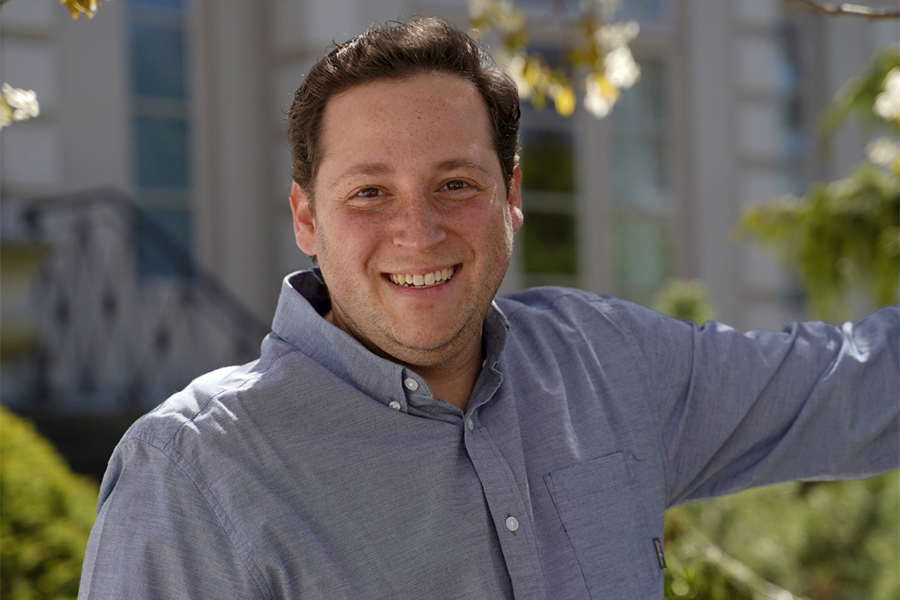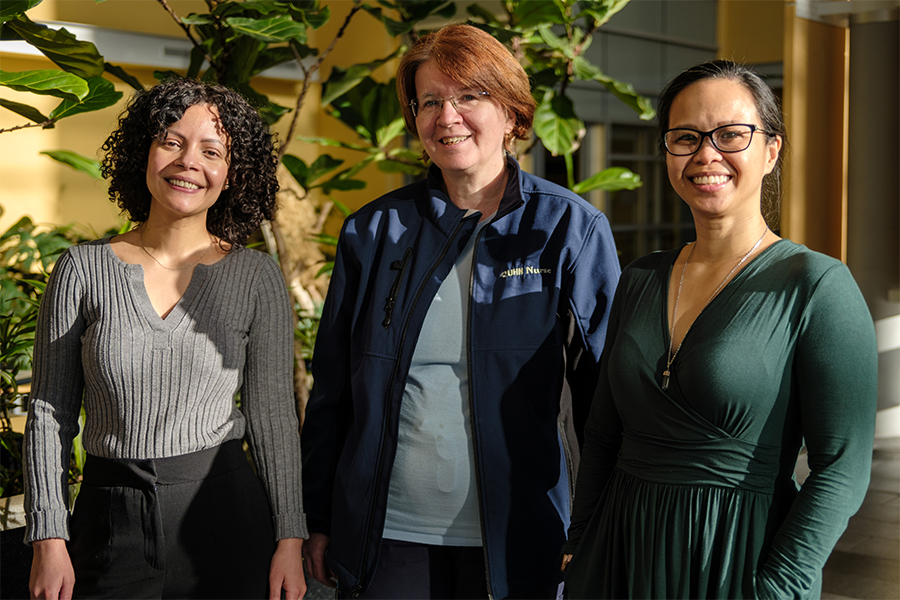A one-time gift from a grateful patient who received care at UHN’s Centre for Mental Health has since blossomed into a community-wide initiative – and tradition – of giving back. Celebrating an exciting five-year milestone the Grocery Gift Card Fund supports mental health patients in need, year-round.
For those unaware, funds raised throughout the year are used to purchase grocery gift cards, which are distributed to some of the most vulnerable patients who struggle with mental health and concurrent disorders, to help them buy food. Catherine Vernon, administrative assistant in the Community Mental Health Clinic, continues to promote this initiative, along with Patricia Melville, team lead for IMPACT, a UHN-led outreach program.
In response to COVID-19, Catherine and Patricia were able to raise enough money to purchase 90 gift cards back in April, which immediately helped patients in both their programs. Juan Delgado is one such patient who benefited from a gift card earlier this year.
“These cards have helped me purchase healthy food, and to keep a balanced diet,” he says. “Receiving a card gave me a more positive perspective, that I was the recipient of an act of kindness. It shows that others care.”
However, with tighter restrictions on physical distancing and volumes of people allowed in hospitals, patients have been unable to attend in-person appointments or sessions with their physician or clinician. They are feeling more socially isolated and are facing lockdowns imposed by the city, which can be bleak. Many are also too afraid of lining up to go into grocery stores or food banks. Patricia explains that IMPACT staff have started to use the grocery cards to go shopping on behalf of their patients in order to provide nutritious food, or healthy ready-made meals. Catherine and her team have started mailing their gift cards in the post, in lieu of providing them in-person.
“Sending these gift cards in the mail helps us, as clinicians, to physically connect to our patients during this time,” says Catherine. “They symbolize that we are still thinking of them, we still care, and we haven’t forgotten about them.”
“Our clients don’t get gifts,” adds Patricia. “The gift of food, especially during this holiday period, is a beacon of hope – it’s a basic, human need. And it all starts with health.”


